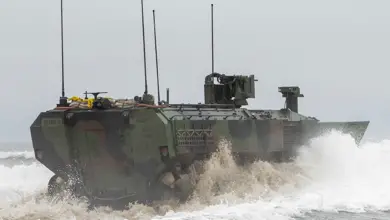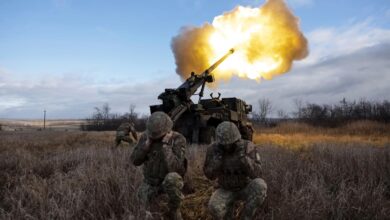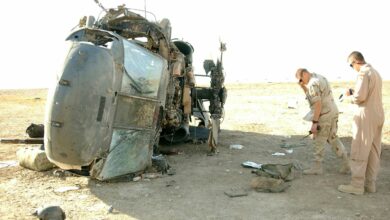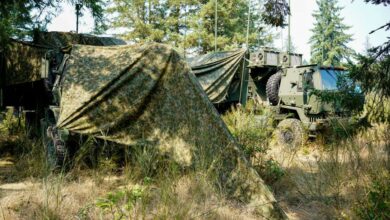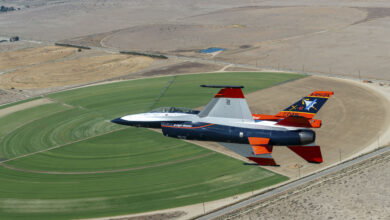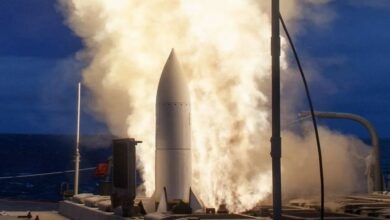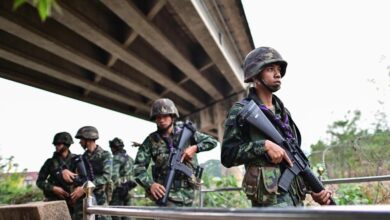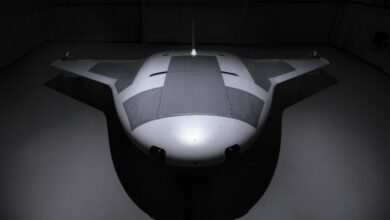
Noted defense analyst Loren Thompson criticizes the Marine Corps’ Force Design 2030 (FD 2030) strategy as being too Sino-Centric. He joins many retired Marines and surprising numbers of active-duty ones — albeit quietly — in denouncing the approach for ignoring the Marine Corps’ traditional “force in readiness” role while it specializes in addressing the Chinese threat.
The critics, and I am one of them, are trying to get Congress and regional four-star combatant commanders to weigh in on slowing the rush to divest the Corps’ traditional war-fighting force multipliers.
These include tanks, tubed artillery, infantry battalions, transport helicopters, and heavy engineer equipment. While these might not be critical in a primarily naval war with China, they might well be game changers in urban combat or in ground conflict with Russia, North Korea, or Iran.
Unfortunately, much of the damage has already been done. Battalions and squadrons of these assets have already folded their colors. Congress is immersed in the November elections, and senior commanders are always reluctant to publicly criticize another four-star general such as the Commandant of the Marine Corps.
Consequently, there will likely be no near-term scrutiny of FD 2030. The nation will remain inwardly focused at least until after November.
Underground Military Reform Movement
Many young Marines I communicate with are genuinely concerned that if this commandant has guessed wrong and they must fight in a place other than the South China Sea, they will not have the necessary tools to win, needlessly risking defeat and casualties.
More disturbing is that Marines might not be invited to a conflict because the regional commander doesn’t think they could add value in a world with constrained air and sea lift to get forces to the theater and sustain them there.

Sometimes history presents solutions to current problems. After the disastrous defeat by Napoleon at the battles of Jena and Auerstadt in 1805, the resulting peace treaty virtually emasculated the Prussian Army and forced it into an alliance with France.
Some Prussian officers went so far as to fight on the Russian side against Napoleon. These included Carl von Clausewitz. But many went underground, creating a military reform movement that quietly worked to fix what was wrong with the obsolete system inherited from Frederick the Great in the 18th century.
These young (and some older) officers created a vision that would eventually throw off French chains and enable the Prussians to contribute decisively to the final victory over Napoleon at Waterloo.
Maneuver Warfare Concepts
More recently, Marines who believed in Maneuver Warfare doctrine in the 1980s did much the same to socialize and debate new tactics and ideas in the wake of America’s defeat in Vietnam.
Although never officially forbidden, some senior officers discouraged discussing Maneuver Warfare concepts. Meeting in basements or quietly after classes at Marine Corps schools, these reformers began a healthy debate that eventually led to the adoption of Maneuver Warfare which became Marine Corps doctrine after General Al Gray took over as commandant in 1987.
When asked for advice by active-duty Marines, I suggest a similar approach today. I do not advocate insubordination. Marines are bound by oath to obey the lawful orders of their superiors no matter how ill-advised they think them to be.
That includes trying to figure out how best to make FD 2030 work until a future generation of leadership takes things in a new and hopefully more logical direction or a wiser Congress forces the issue.

Discussion, Using Captured Equipment
So, this is what I recommend to active-duty Marines.
Put together informal education and discussion groups to formulate ways to adapt and innovate if placed in a combat situation not anticipated by current Marine Corps leadership. In this, the war in Ukraine provides some examples.
In a non-Sino conflict, Marines should be prepared to use captured enemy tanks, artillery, logistics equipment, and aircraft to compensate for what they don’t currently have.
They can study the operation of Russian, Iranian, and North Korean equipment and learn to utilize and fight such equipment so they can train their own troops to operate the captured systems. With some innovation, computer simulators and tutorials can be developed and shared through the internet and social media.
Marines have traditionally been underequipped by the defense establishment and have always been exceptional “scrounges.” Other service members billeted near Marine Corps units who have not guarded their equipment carefully have learned this to their sorrow for years.
Similarly, such informal groups can speculate on ways to compensate for the lost five infantry battalions by using allied troops. I am not talking about training foreign units in our image as we did in Iraq, Afghanistan, and Vietnam.
Rather, we can educate our officers and senior enlisted to recognize the strengths and weaknesses of allied regular and irregular forces and seamlessly integrate them into their schemes of maneuver.
The same holds true with logistics. It is now fashionable to denigrate the Confederate armies of our Civil War, but they managed to survive (if not thrive) on inadequate logistic support by living off the land for four years.
Given the inadequate attention of Marine Corps leaders, self-taught “desperation logistics” skills by junior and field grade leaders could become critical in a future conflict not anticipated by the current establishment.
Marines should remember that being ready to fight in “any clime and place” is part of our DNA, even if the senior leadership has forgotten it.
 Gary Anderson was a senior member of the Defense Adaptive Red Team and a Special Advisor to the Deputy Secretary of Defense.
Gary Anderson was a senior member of the Defense Adaptive Red Team and a Special Advisor to the Deputy Secretary of Defense.
He lectures on Wargaming and Alternative Analysis at the George Washington University’s Elliott School of International Affairs.
The views and opinions expressed here are those of the author and do not necessarily reflect the editorial position of The Defense Post.
The Defense Post aims to publish a wide range of high-quality opinion and analysis from a diverse array of people – do you want to send us yours? Click here to submit an op-ed.

